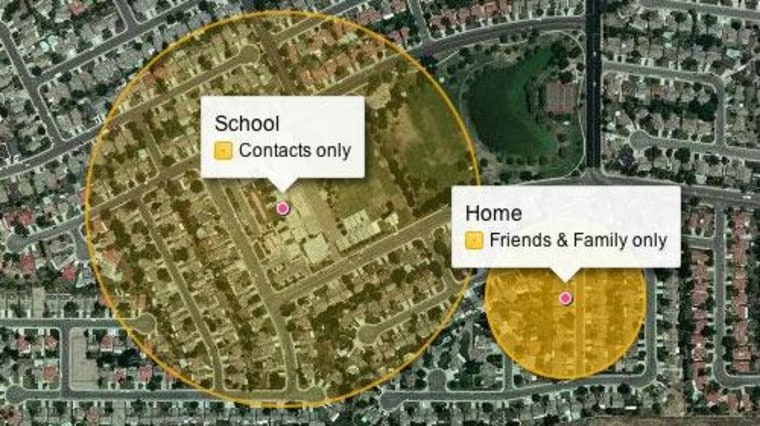Photo-sharing giant Flickr has rolled out a new privacy feature enabling its users to keep the geo-location data of their photos as private as they choose.
Announced in a Flickr blog Tuesday, "Geofences," allows users to specify exactly which groups of contacts and friends can view the location tags attached to the jpeg-format photos they upload.
To use Geofences, a Flickr user highlights a specific area on a map, and assigns photos taken within that physical radius as accessible to different groups of contacts. So if you draw a circle around your work, for example, you can make it so only people in your "work" group can see the location of those photos.
The privacy upgrade follows in the steps of Google's new social networking site Google+, which contains circles that allow users to delineate access rights for separate groups of friends.
Masking the geolocation of your photo may be of little importance if you post a pic of an immediately recognizable place like, say, the Statue of Liberty, but it could provide a crucial safety net for photos of your home or office, or any places whose location you'd prefer to keep private.
When you snap a photo, a little piece of code is embedded in the picture that indicates exactly where that photo was taken. These geotags, as they're called, are not visible to the casual viewer, but often smartphones and photo-sharing services are set by default to include them in the photos.
Disabling this feature can be a complicated process, or one that users simply pay no attention to, as evidenced by " MythBusters" host Adam Savage, who posted a picture to his Twitter account of his car, and soon found out that, because it contained a geotag, anyone of his nearly 530,000 followers could find out exactly where he lived.
Geofences, Flickr says, is a way to eliminate privacy breaches like this by building in the security before a problem occurs.
"Geofences makes it much easier for users to control who can see where a photo was taken without manually changing geo privacy on individual photos that they'd like to be different than the global default," Denise Leung, Flickr's product manager, told SecurityNewsDaily. "This especially enhances the experience for users who like to upload photos from smartphones that automatically write location information to the photo."
According to Flickr's Trevor Hartsell, this enhanced privacy setting arrives just when it's needed most.
"A few years ago, privacy controls like this would have been overkill, Hartsell wrote. "Geo data was new and underused, and the answer to privacy concerns was often, 'you upload it, you deal with it.' But today, physical places are important to how we use the Web. Sometimes you want everyone to know exactly where you took a photo. And sometimes you don't. "
"Simply draw a circle on a map, choose a geo privacy setting for that area, and you're done," Hartsell added. "Existing photos in that location are updated with your new setting, and any time you geotag a photo in that area, it gets a setting too."
Leung added that setting up a geo "fence" around your home or work or any other location helps users hide sensitive location information while still keeping their photos viewable to all their contacts. "Geo privacy is not based on the viewer's geographic location, but on the relationship with that contact that you've defined on Flickr, i.e. contact, friend, family," she said.
Daniel Sheehan, a geospatial analyst with Columbia University's Institute for Social and Economic Research and Policy, applauded Flickr's foray into stricter privacy policies.
"This is one of the first attempts at privacy settings of geographic info," Sheehan told SecurityNewsDaily. This is a step forward in locational privacy."
